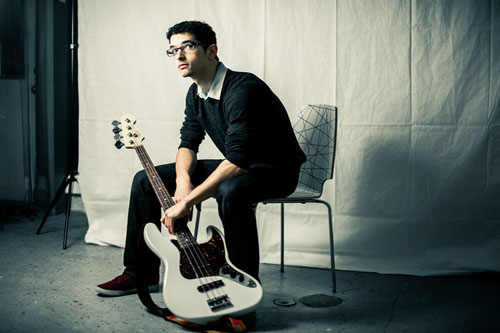If you missed part 1 of this series, “Do Practice Time Lengths Matter?” here it is!
In part 1 of this series, we discussed why long, open-ended practice sessions — longer than 90 minutes — can detract from your students’ learning. Remember that it’s important to provide a specific, structured learning environment that shows students the value of their musical learning and offers students an opportunity to explore their instrument.
In this article, we’ll build on those principles by focusing more time on deliberate practice, the hallmark finding of academic researcher, K. Anders Ericsson, and how deliberate practice – also known as focused practice or practicing with purpose – is something that all teachers should teach to their students.
Focus, Engagement and the Right Kind of Deliberate Practice
K. Anders Ericsson’s work is highly regarded in the fields of skill and musical development. Ericsson studied the world-class experts of many different skills including chess, music, woodworking and much, much more and found that it takes roughly 10,000 hours of deliberate practice to achieve world-class status. Deliberate practice, as Ericsson defines it is, “a regimen of effortful activities designed to optimize improvement”. In other words, rather than just playing music, you’re figuring out what can be improved, what is the best form, what happens when X happens, what happens when Y happens and so on.
This is what supercharges practice sessions and expedites the learning and skill development process: practicing with purpose.
While this is considerably more challenging to do, that is why Ericsson and other experts in the same field have found that 30-90 minutes of deliberate practice, as we discussed in Part 1 of this series, is the optimal amount of practice time to achieve the best results.
Introducing deliberate practice to your students comes with the following supplemental topics to consider:
- Focus is key. Do you stay engaged with the task at hand? If you finding yourself deviating to other tasks, you’re likely bored with the way you’re practicing now and need to make a change to combat the boredom.
- When you actually decide to practice is just as important as how and what you practice. Encourage your students to chart their day and identify the times where they feel most energized and motivated to practice. Giving the students the power, capability, and the knowledge that everyone practices differently can do wonders for student engagement.
- Make a point to write things down when you practice. Notes, ideas, results – something to engage your brain as you play, rather than just playing on loop and expecting results to occur.
These are just some of the suggestions that teachers can provide to new students. Once the student begins showing signs of improvement and independent musical thought with the aid of teacher-directed practicing specifics, the teacher can now begin to give the student more autonomy and build up their ability to deliberately practice in a way that’s effective.
Practicing With Purpose
Remember that mindless repetition of passages, songs and patterns can be counterproductive to practice, but taking steps to combat this can be done very simply. Here are some suggestions to consider:
- Take notes while you practice. Note taking in this context can mean a lot of different things, but the overarching picture is that taking notes while you practice encourages you to think about what you’re playing and remember specific details about the moment. Rather than telling yourself “I need to go back to that later”, by taking notes while you practice on specific measures, changes in feel or dynamics, you’re now putting yourself in a better position to remember exactly what needs work later and can use your time more effectively come next practice. Moreover, writing things down is one of the best ways to retain information.
- Work on the details as much as the bigger picture. Taking time to focus on the smaller things like dynamics, feel and transition, again, is another way to combat just repeating a phrase over and over again and encourage you to think and interact critically with your playing.
Why Should This Matter to Teachers?
As I pointed out in Part 1, teachers have tremendous power of influence over their students’ learning. The more that you show that practicing musical skills doesn’t need to be something to dread, the better the likelihood that your student-teacher learning relationship will flourish and your student will want to learn.
Though there has been criticism of Ericsson’s work, whether the 10,000 hour concept might be an over-simplification, and whether or not deliberate practice is in fact something that should be brought up in the learning process, his work regarding focused, purposeful practice towards a clear goal can still benefit your students.
About the Author
MIKE EMILIANI is a bass player, composer, producer and writer. He’s the editor and founder of Smart Bass Guitar, an online resource exploring bass guitar through long form instructional content, opinion pieces and expert interviews.Since elementary school, Mike has been musically active, beginning with trombone in 4th grade and later adding bass guitar and production software in high school to his skill set.Mike is currently the bassist for the live hip hop band Big Scythe and Soldiers of Life and the folk band Straw Man Standing. Mike also plays solo shows around Rhode Island and New England as 10 Volt Army, a one man band project combining bass guitar and electronic music. All the projects are based out of Rhode Island.
The content of this Blog article or Banded Story is the intellectual property of the author(s) and cannot be duplicated without the permission of KHS America and/or the author(s). Standard copyright rules apply.



 We look forward to the evolution of this exciting program, and welcome feedback on how we can further enhance the work that you do in music education.
We are excited to offer your program the opportunity to join the KHS America Academic Alliance today.
We look forward to the evolution of this exciting program, and welcome feedback on how we can further enhance the work that you do in music education.
We are excited to offer your program the opportunity to join the KHS America Academic Alliance today.